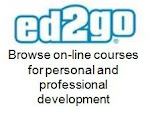
You may have come across a blurb in a publication or on a web site that brings up the subject of the
hidden job market. And you've probably asked yourself "why is it hidden and how can I find it?" Well I have good news for you. The
hidden job market isn't really hidden; but it will take creativity, resourcefulness and determination to access. The
hidden job market is really just another name for a proactive job search. Gone are the days when looking through the Sunday paper with highlighter in hand would consistently result in promising job leads. And if you're waiting by the phone for hiring managers and recruiters to contact you after posting your resume on one or two popular job boards, make sure you have access to a bathroom - it will likely be a very long wait!
I'm not saying that you shouldn't check the want ads or the popular job boards, just don't make them the foundation of your search. Take into account that you, along with thousands of candidates (even tens of thousands in major cities), are using these same obvious sources. Check them every once in a while or set-up an automatic search agent so the job boards will send you an email with posting matching your criteria.
So how can you take control of the search process? Consider the following list of resources to be your map and flashlight...as you set out to discover the
hidden job market.
Networking: Reach out and contact family, friends, professional contacts (peers and colleagues), academic contacts, community contacts, etc. and let them know you are looking for a new opportunity. Be clear and concise about the type of position you are seeking and be prepared to send your updated resume.
Print Ads in Industry Publications: Remember to look at the career postings in the newsletters and journals you receive through memberships to professional associations.
Meta-search Job Boards: Try sites like
Indeed.com or
SimplyHired.com to search multiple job boards at once, based upon key words and location.
Specialty Job Boards: The idea is to move well beyond the obvious and identify job boards that represent your location, occupation, industry, etc. Job boards with a niche focus will likely provide a greater percentage of qualified leads. Some of these may require a monthly subscription. So what? It’s an investment! Sign up for a few months, take a look around and cancel if you’re not getting the leads you expected.
Researching Companies of Interest: Access information from industry directories, Chamber of Commerce directories, online databases for company research, and advertised lists of top companies. Compile a list of the top 25, 50, etc. companies that are of interest to you, then jump to the company web site and explore postings on the site’s
Careers page.
Professional Associations: Join groups that represent your industry and/or occupation. Then make the effort to attend lunch meetings, workshops and roundtable discussions. These groups offer you an opportunity to reconnect with colleagues and meet new peers, thereby expanding your network.
Alumni Associations: Remember these? Instead of throwing away the newsletters and magazines from your alma mater, check out what the alumni career services department has to offer in terms of free or low cost job search, company research and networking resources.
There are actually several more resources in addition to those listed above. Rather than dividing your time and effort among all the possible resources, do your homework and then select 3 to 4 resources that you believe will be the most promising for your specific search. If a proactive job search sounds like a lot of work…you’re absolutely right! In a competitive market, the candidate who is willing to put in the time and effort, while being a bit more creative and tenacious, will likely have the advantage. Or you could just use the same old, obvious, tired resources and wait for the phone to ring…and wait, and wait, and wait.
Why not take control, kick it into gear and uncover promising leads each week? If you need help getting organized, staying focused, updating your marketing materials, or preparing for interviews, then contact a
career coach for assistance. There is some truth in the old adage that we make our own luck. So what are you waiting for? It's time to get busy and find that best fit career opportunity!
 This week, a client asked me if he should put his job search on hold until the economy improves. A perfectly legitimate question! Essentially he wanted to know if this is a good time to look for a job. Whenever someone asks me that question, I respond with the same answer...
This week, a client asked me if he should put his job search on hold until the economy improves. A perfectly legitimate question! Essentially he wanted to know if this is a good time to look for a job. Whenever someone asks me that question, I respond with the same answer...





 Career coaching
Career coaching 







